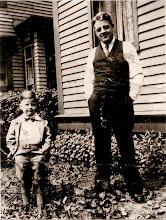When my oldest brother Bill got cancer, the family had plenty of time to address the issue of what to do once Bill was gone: they decided to continue going to the cottage as long as they were physically able to do so. Unfortunately, the cottage was on leased land: what they failed to do was make sure his wife's name was on the lease while he was alive. Bill's widow faced an increase of five times the former lease rate when she received her renewal notice. She was considered a new lease.
The best way, to my way of thinking, to ensure a positive outcome is to do some homework: ask friends what experiences they have had or know about, check the internet. Once you start investigating matters regarding the camp, you may want to get the most current financial advise regarding estate law. I recommend you read You Can't Take it With You: Common-Sense Estate Planning for Canadians
The way I figure it, the government pisses away enough of my tax dollars, I don't want to give them one more cent than I have to by law. If I don't take charge and administer my affairs the government will charge my estate after I'm dead to do it themselves. Over my dead body!
When it comes to making decisions about the family camp by the lake, there are basic areas that need reviewing: accessibility, maintenance, family dynamics and financial matters. The family with a history of heart problems should seriously consider selling the camp with access that consists of two flights of stairs over a rock cliff face. The couple with thirteen children may want to register the place as a "corporate" entity so the camp stays in the family regardless of divorce or other changes in relationships, shares requiring either "cash shares" or "work value shares" to be corporate members. Families with children living across the country may have to ask the children outright what they would like to see happen to a place they may have strong or unspoken feelings about. Don't draw the conclusion that because you love the camp, built with your own two hands, your children or grandchildren feel an equal affection for the place. Similarly, don't count on the continued assistance of friends or family because economic, health or any number of problems could suddenly require a laying out of cash to cover labour previously donated.
I think chatting with George this morning got this post percolating in my brain. Hope it brewed up all right. I'm off to my own camp now. I'll get back to you in a bit.





No comments:
Post a Comment